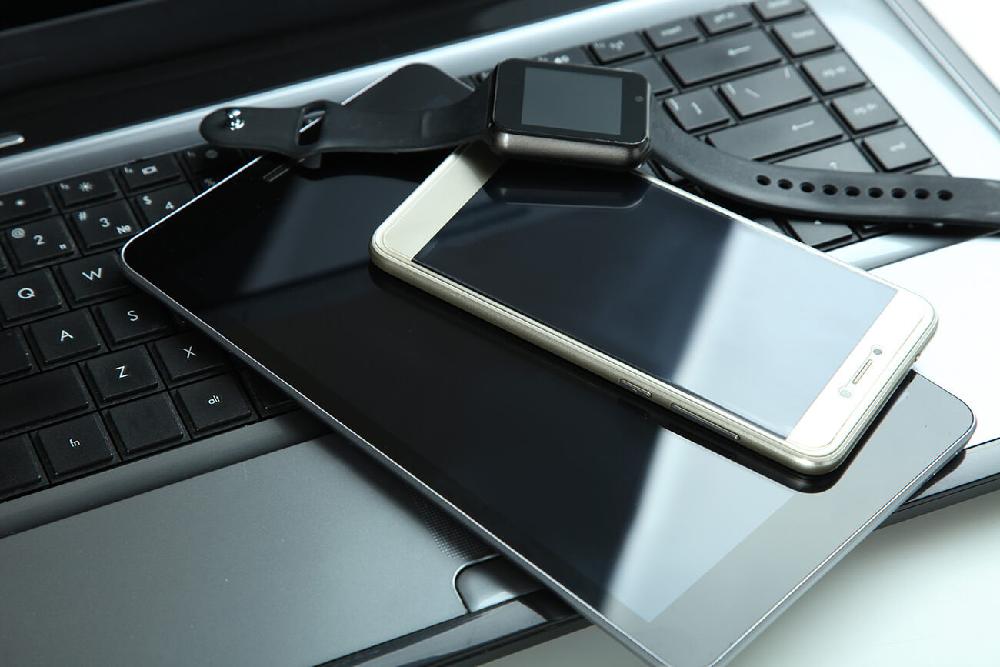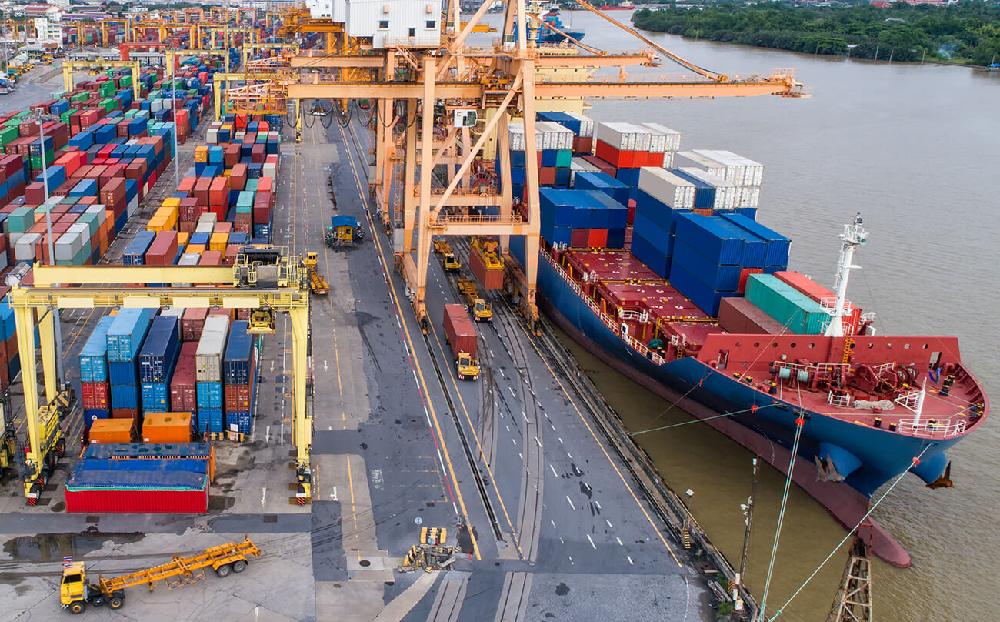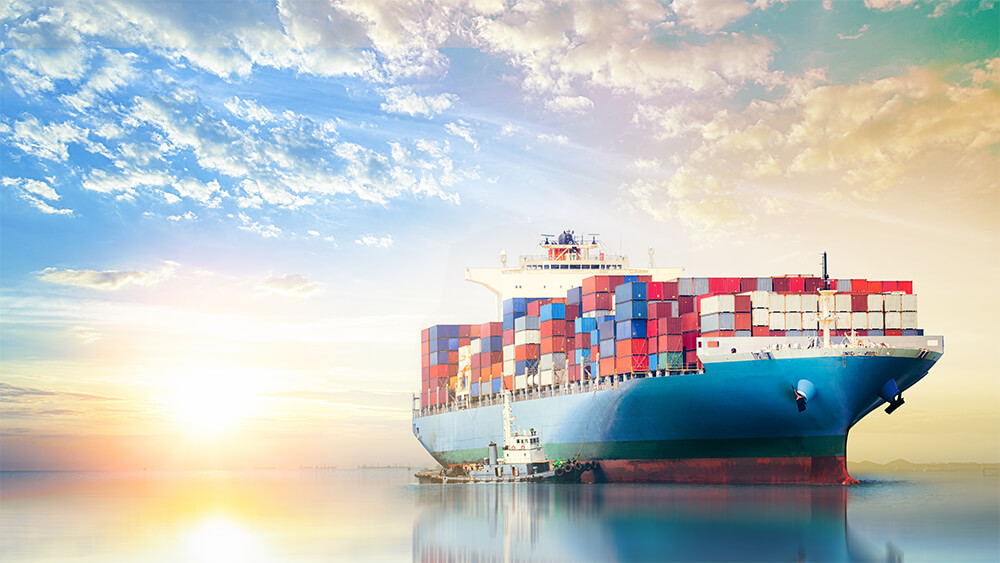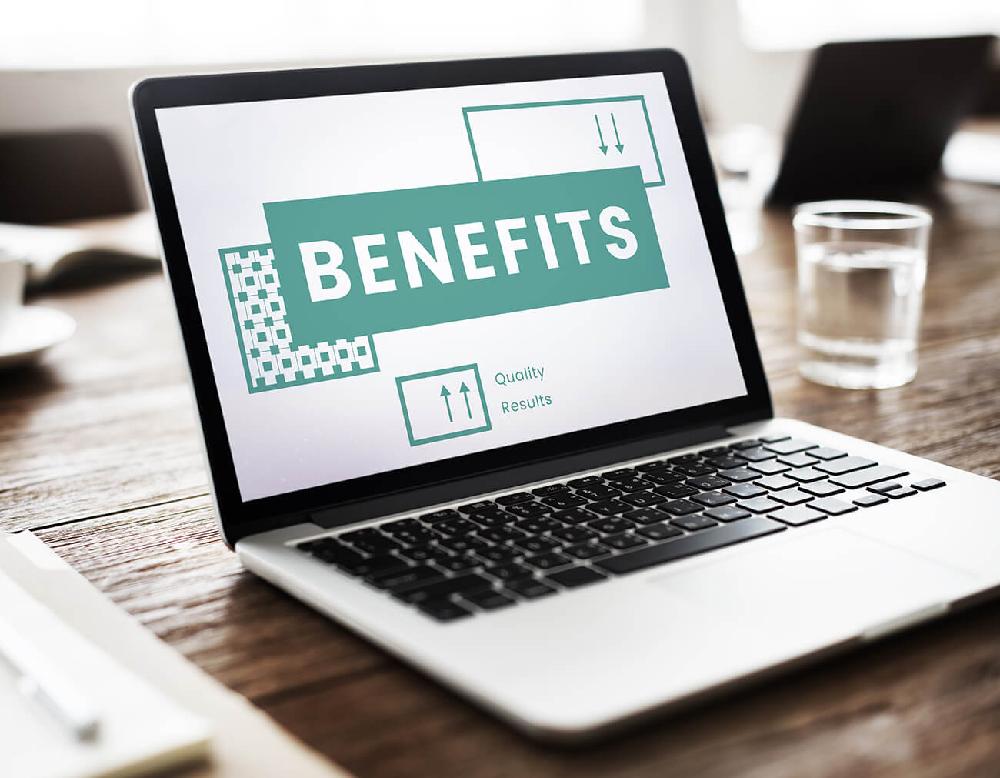General Insurance Blogs, Articles & Updates by - Magma HDI
Have us call you
- RENEW YOUR POLICY
- BUY NEW POLICY

Did you know you could safeguard your precious gadgets/equipment with this one step?
Connectivity has become the fourth pillar of our rations today. Each one of us, at least, own three gadgets, in which we store and share critical data. Whether it is business-related information or personal details, our gadgets hold a lot of information that, if leaked, could cause serious damage. Besides the implications of a security breach, these gadgets come at a high cost, and replacing a lost or stolen one may seriously burn a hole in the pocket.
Therefore, it’s prudent to secure your gadgets by taking Electronic Equipment Insurance (EEI). EEI extensively covers loss of electronic good, and subsequently, helps to meet unavoidable costs. Depending on the coverage that will be best suited for you, there are different types of EEI to choose from. Before we get into the different types, let’s take a true look at the scope of the cover.
What’s Covered?
- Damaged equipment coverage, including replacement expenses, such as freight, installation cost, customs duty, etc.
- Damaged data media coverage, including expenses incurred in restoring lost information, external data media, damaged/lost data media, etc.
- Increased cost of working, caused due to employing more manpower to substitute for the work that would have otherwise been done by the equipment.
- Any damage caused to the equipment’s software as a result of the damage to the hardware is also factored in.
Types of Electronic Equipment Insurance
All risks included
Give your gadgets complete protection from perils, including those caused by natural and man-made causes. For instance, damage due to natural calamities includes the ones caused by fire, landslide, or storm, whereas manual perils include terrorism, strikes, and riots.
External data media
This option covers the losses partly and includes expenses arising due to data loss on external media devices, such as hard discs, etc.
Increased cost of working
This type of EEI is usually taken by organizations that rely heavily on data processing units. In the event of any loss or damage to the unit, the expenses incurred to employ any additional/alternative tool or manpower, are covered by the insurance policy.
What are the types of electronic equipment that can be secured with EEI by Magma HDI?
Electronic Equipment Insurance is suitable for a range of equipment, including, but not limited to:
- Computer and allied peripherals
- Audio visual equipment
- Auxiliary equipment, such as voltage stabilizer, UPS, etc.
- Electronic control panels
- Navigation equipment
- Telecommunications equipment
- Electronic equipment used for research and testing materials
- Medical equipment, such as MRI scan machines, X-Ray machine, ultrasound devices, etc.
Who should take an EEI by Magma HDI?
Practically, anyone who owns and operates electronic equipment should secure their gadgets with an EEI.
- Owners and businesses owning electronic equipment
- Organizations that are involved in leasing electronic equipment
- Third-parties, such as financiers or bankers who ultimately bear the purchase cost of the equipment
While an Electronic Equipment Insurance secures your gadgets from multiple threats, note that there are certain cases, such as normal wear and tear that do not fall under the purview of the policy.

Do I need marine insurance?
Insurance provides the safety net required to protect the financial integrity of your personal and professional needs. If you are in the business of sending or receiving physical goods from one destination to another, insuring your goods and business interests inevitably becomes your priority.
Therefore, the simple answer to whether or not you need marine insurance is 'yes'. Read along to understand why that is so:
What is marine insurance?
‘Marine’ insurance is a colloquially used term for any kind of transport insurance, not just restricted to waterways. Whether your cargo or goods are moving over land, railways, or a combination of multiple transport modes, marine insurance provides cover for any loss or damage to your goods while in transit from source to the point of delivery.
Marine insurance can be purchased by sellers, buyers, and even financiers of the goods. So, whether you’re a small trader, moving materials interstate or a manufacturer sourcing raw materials or a large import/export house, marine insurance can protect your stock against any unforeseen eventualities.
Why marine insurance?
Depending on the mode of transport, distance, size, and value, your cargo could take days or months to get from one point to another. In the interim period, your goods are at the risk of damage due to accidents, improper packaging/ storage, seepage of water, mishandling by personnel and natural disasters such as floods, fire, and storms. They could also be lost due to theft, piracy, or be lost at sea. The carrier, in most cases, cannot be held liable for any damage or loss either. Hence, it becomes imperative to opt for additional security.
All natural calamities and human errors can be covered by marine insurance. There are various types of policies such as valued, unvalued, floating, time, voyage, etc. that you can choose from basis your needs, irrespective of whether the cargo is moving for domestic trade or across international waters.
Magma HDI, for example, provides comprehensive coverage through its Marine Cargo Open Insurance Policy. Whether you are sending a small parcel via airmail or a huge consignment via cargo, Magma HDI has your peace of mind covered.
In some instances, taking marine insurance may be obligatory basis the terms of the shipping or business contract. This helps bring in clarity over service delivery and safeguards the interest of all parties.
Alternatively, the insurance helps you gain a lot more control over the jurisdiction and language if in case the need for a claim arises. Imagine dealing with an insurer based out of Japan speaking a language alien to you while you are trying to get the information and paperwork through. It can be both time-consuming and exasperating.
In conclusion, marine insurance is extremely pocket-friendly. The premium depends on the value of the goods and the mode of transport. For a fraction of the cost of the shipment, you can secure your peace of mind. In case the need for a claim arises, a dependable insurer like us is just a phone call away.

Events when your Marine Cargo insurance claim gets rejected
With the continuous rise in international trade, the volume of marine cargo is also increasing. Marine cargo has always been and will be an important component of international trade. With more and more businesses opting to transport their goods through marine cargo, the market is on the rise for shipping companies. This increase in business also increases the importance of having a comprehensive marine cargo insurance policy.
Irrespective of the fact how simple you might think a marine cargo insurance policy is, several claims get rejected every year due to one reason or another. You must, therefore, immediately take the necessary steps to ensure that your insurance claim does not meet the same fate.
Here is a list of the events when your marine cargo insurance claim can get rejected and how you can avoid them.
- 1. Insurance policy is not proper: - Not all marine cargo insurance policies cover for all types of damages. This is why you must have a comprehensive marine cargo insurance policy. If your policy does not cover the damage for which you have filed a claim, your claim will get rejected. Moreover, any changes in the constitution of your assignment or cargo might also lead to this rejection. You must, therefore, review for policy periodically and get it updated as and when required.
- 2. Mistakes in filing the claim: - Whether you have failed to file your claim within the requisite period or have filled the claim form incorrectly or have filed a claim under a wrong policy, the marine insurance companies will not hesitate in rejecting your application. Even, if they do not dismiss the claim outright, they might delay it for many days. Therefore, you must give this responsibility to an expert who has successfully filed such claims in the past.
- 3. Mishandling of goods: - If you have not packed the goods correctly or your personnel has been mishandling them, then the insurance claims filed thereon will be rejected by the insurer. You must, therefore, ensure proper packaging and careful handling of the goods on your vessel.
- 4. Perishable Goods: - Even if your insurance policy specifies that losses suffered due to delays will be compensated, it does not cover damages caused to goods of perishable nature. You must, therefore, check with your insurance company if such goods are covered under the policy or not, before accepting them.
- 5. Negligent Maintenance: - If you have not been paying attention to the maintenance of your vessel, marine insurance companies will certainly reject your claim. As your vessel will be plying in rough waters as well, so the chances of it suffering from damages are very high. These damages must be repaired as soon as possible to ensure the safety of the personnel as well as the cargo. You must, therefore, ensure that your vessel undergoes regular maintenance and follows safety and standard operating procedures. You should also keep a log of the repair and maintenance work carried out on the vessel, as it will help with your claim later on.
You must therefore carefully assess your needs, discuss them with your marine insurance company and only then subscribe to a comprehensive marine cargo insurance policy that caters to all your requirements.

Hazards of shipping goods by the sea & how marine insurance can help
Ocean shipping is one of the most cost-effective means to ship out your goods to international borders. If a business acquires large bulks of orders from foreign customers wherein there are no quick delivery protocols, then shipping goods by the sea is the most viable option. However, there are some demerits attached to this practical advantage. Shipping goods via sea or ocean floor depends highly on factors like; weather, human-error, technical issues, and etc.
The hazards of not comprehending such factors might lead to disasters or accidents in the ocean, which further adds monumental loss to both business owners and the environment. This can be easily averted if you plan and get hold of proper marine insurance to combat the risks of shipping. Some of the better-known dangers related to sea shipping and how insurance can help tackle them includes;
- The occurrence of natural calamities - Perils never comes knocking on doors; they strike on decks without a single warning. Thunderous sea-storms, cyclones or tsunamis can destroy well set stocks and lives of those sailing on carrier ships. We cannot challenge the force of nature but what we can do is opt for marine insurance online to cover the losses, injuries, or damage caused during such natural disasters.
- Human Errors - There are certain dangers caused by man that could lead to a disastrous situation. Having untrained ship sailors or workers who load and unload goods with negligence and carelessness might create rooms for few accidents to occur in transit.
A reliable shield in the form of marine insurance to handle the mismanagement of shipping goods by workers would be a great help in such situations. - Geographical Hazards - Apart from natural distress signs, there are other forms of dangers present at sea in the name of geography. Try remembering Titanic, an unsinkable ship that sank nevertheless by hitting a massive iceberg. Big cargo ships going through narrow canals, icebergs, rocky shores or shallow coral reefs can get caught on sides or bottom, hence creating unimagined losses.
Mitigating such losses by having a rational marine insurance plan is one way, and another way is to have the ship properly tested for such hazards and assign a well trained, professional staff for commandeering the vessel. - Technological Issues - Such issues are more or less related to the ship's structure, engineering equipment, navigational tools, or motor engines. If the boat starts leaking oil in the ocean or one of the propellers is jammed due to long years of service, it could sustain significant damage to the goods on board.
To avoid such substantial financial losses; having a well-planned marine policy that can cover the ship's outer and inner structure after a thorough inspection is the right way to go.
Businesses work for profit and if your business requires delivering goods via sea or ocean, then why not keep yourself financially protected with a Marine Insurance cover and keep the profits intact.

How NCB Works for Car Insurance?
Your car insurance comes with an annual premium, which helps you bear the financial losses that may arise due to an accident. While a claim-free year may seem like a waste of money since you paid the premiums but didn't really use the benefits, it's really not the case. Firstly, having insurance provides you with mental peace that in the case of any mishap, your finances will be covered. Secondly, your insurance provider offers you discounts on your next year's premium if don't make a claim in the previous year. This is what is known as a No-Claim Bonus (or NCB). Keep reading to find out more on how to maximize savings on your Private Car Insurance In India.
What should you know about NCB?
Car insurance companies reward vehicle owners who drive safely with no-claim bonuses. The bonus becomes applicable if you get through one policy year without making a claim. The company pays the discount on Own Damage (OD) premium for each claim-free year
Typically, the amount can vary from one insurer to another. But, discounts begin at 20% per year and can go up to 50% for five claim-free years or more.
How does NCB work?
When a policyholder does not file any claim in the past one year, a no-claim bonus is initiated by the insurer.
As a result of this, you’ll get a discount on your annual premium amount subject to increase with every succeeding year.
Things to remember about NCB in India
An essential feature of NCB is that it relates to the policyholder, not the vehicle as it rewards you for precautions taken on your end. So, you can retain your NCB even if you replace your existing vehicle. Other prominent features of a no-claim bonus are:
• Applies even when you switch the insurer
When you switch from one insurer to another, the no-claim bonus remains unaffected. For example, if you have a policy from company X for the last five years with no claims made and you shift to company Y later on, the company Y will give you a benefit of 50% discount on your annual premium as NCB.
• Bonus increases every year
The insurance companies calculate your no-claim bonus in the range of 20%-50% on an annual incremental basis.
• Doesn’t apply on third-party cover
Keep in mind that the no-claim bonus applies to the own damage or OD cover on your auto insurance. So, if you have only the third-party (TP) cover, you’re not eligible for NCB. However, if you have both OD and TP protection, you’ll receive the discount proportionately.
Protecting your NCB
As NCB policyholders, you are entitled to a maximum discount of 50% for five claim-free years. However, this discount expires if you make even a single claim. In such a case, to protect your NCB, insurers give you the option of opting for an add-on cover. It covers your claim in order to protect your NCB.
Another great hack to keep your NCB would be to avoid making claims for smaller damages.
Head over to Magma HDI to find out more about NCB available with your private car insurance in India.

Monsoon Safety Checklist for your cars
Monsoons might not be the ideal time to drive around. The roads are slippery, and there are higher chances of meeting with an accident. However, the rainy season does not mean that you should stop driving altogether.
Instead, you should make sure that you follow some safety points to make sure that your driving experience is smooth and safe.
Here, we will look at some of the safety checkpoints that you should follow during monsoon. However, before we dwell on that, it is crucial to make sure that you get Car Insurance Online In India so that your car is covered in case of any unforeseen circumstances.
Fix those exhaust holes
Exhaust holes are made of iron, which means that they are vulnerable to rust. If there is a hole in your exhaust, then there are more chances for the rainwater to get in, besides the fact that a faulty exhaust is no food. Make sure that you have checked your exhaust for holes and other damages to ensure the smooth running of your car.
Cover your headlights
With time, your car headlights tend to develop spaces with them due to constant wear and tear. If they are damaged, then it is highly likely that the rainwater will get inside them, further leading to the damage. Make sure that you patch up these spaces so that your headlights are safe. Faulty headlights can lead to driving problems at night — something which no driver wants!
Check the door of your car
The doors in your car have a rubber attached to it. With constant usage, they may loosen up and make room for the raindrops to seep and ruin your interiors. To make sure that your interiors are as good as new, make sure to check on these doors now and then. If needed, replace them, as a repair might not be the easiest or the most convenient of ways.
Check your brakes
If you are driving around in rains, through clogged puddles, some water might just get deposited in your brake pads which can hinder the braking process and might lead to the deterioration of your brake pads. To get rid of the moisture, find a dry stretch of road and gently apply the brakes. The heat which comes out of friction will take the moisture away. If you find mud deposited on your pads, then go to a mechanic and get it clean. Remember that brakes are one of the most critical components of your car and you should always have them in good shape.
The way you treat your car is the way the car treats you. One cannot stress enough on the importance of taking care of vehicles. Magma HDI car insurance comes with affordable premium rates and features such as support for anti-theft devices, which can ensure that your car has a long and safe life.

First-time car insurance buyer's guide
Buying your first car can be a little overwhelming. You work persistently and save your hard-earned money aside to buy the vehicle of your choice. However, keeping your vehicle safe and secure is a necessary next step after your purchase. Accidents occur anytime and anywhere. Having a comprehensive car insurance policy to back up those damages is a wise decision to make.
These days, you may buy a car insurance policy online or by contacting a service agent at your convenience and get your vehicle insured. With a sound knowledge of car insurance policies, you can optimize your purchase and savour great benefits. Read along to have a better grasp of your first-time insurance purchase.
Purpose of Car Insurance
'Use it or lose it' is a common motto on which car insurance policy runs; to benefit from it, you need to pay a yearly premium. On the off chance that you are lucky enough not to have gone through a severe road mishap, you lose the premium sum paid for insurance. Then again, you get a No Claim Bonus, which is a quite significant sum beginning from 20% of the premium in the first year to 50% in the sixth, which is the reason why you shouldn't go for minor harms claim.
Different Covers under Policy Terms
A well-framed car insurance policy covers the damages due to natural disasters like earthquakes, floods, storms, typhoons, etc. Secondly, it includes the loss incurred due to manual disturbances like riots, theft, terrorist attacks, fires, etc. Thirdly, you as the insured can access the personal accident cover for your family if you die or suffer disability post-collision or mishap. Some company even offers benefits to co-passengers at the time of the accident. Your insurance policy covers the third-party liabilities like if you accidentally damage a third person's car or he dies of injuries due to collision, your insurer will protect you from legal repercussions.
Additional Benefits and Covers
One of the pluses of having a comprehensive car insurance policy is that you get various additional perks. It may raise the premium amounts a bit, but the level of your car's safety is maximized. Some of the add-ons can be;
- Windshield or car glass cover
- Accident cover for a paid driver or unknown passenger
- Depreciation waiver
- Personal belongings damage/theft cover
Hiring an Insurance Advisor
During the brainstorming sessions of buying your first auto insurance, it is natural to get perplexed with different coverage benefits. A simple way to tackle that confusion is to get in touch with an insurance agent who is well versed with different company's policy premiums and covers. He can advise you along the way to look over your shortlisted insurers by comparing their proposed rates. He may also identify premium discounts for your first-time policy purchase.
Going for a comprehensive car insurance policy is prudent. It gives a well-rounded cover for your car. So, it's highly advisable to get in touch with your financial experts and buy a car insurance plan today.

Your car premium may be affected by your location!
Car insurance is a critical aspect of car ownership, providing financial protection in accidents, theft, or damage to your vehicle. However, the cost of car insurance can vary depending on several factors, including your driving history, car make and model, and age. Apart from this, location is also one of the most significant factors affecting car insurance premiums. Where you live plays a crucial role in determining the cost of your car insurance premium. The influence of location on car insurance is a complex issue that involves several factors. Insurance companies analyse these factors when determining your car insurance premium.
This blog post will explore how your location affects your premium so that you are aware of the correct policy before buying car insurance. Without any further delay, let's get started.
1. Crime rate
One of the most significant factors that can affect your car insurance premium is the crime rate in your area. Insurance companies consider areas with high crime rates a severe risk, as they have a higher incidence of car theft and vandalism. This increased risk means you may have to pay a higher premium if you live in an area with a high crime rate.
2. Population density
Another factor that can affect your car insurance premium is the population density of your area. Areas with high population densities have more traffic, which increases the likelihood of accidents. Therefore, if you live in an area with a high population density, you may have to pay higher car insurance premiums.
3. Weather conditions
The weather in your area can also affect your car insurance premium. Regions with harsh weather conditions, such as snow, ice, or heavy rainfall, have a higher risk of accidents. Therefore, if you live in an area with extreme weather conditions, you may have to pay higher car insurance premiums.
4. Road conditions
Poor road conditions, such as potholes or inadequate lighting, can also increase the risk of accidents. Insurance companies consider the road conditions in your area when setting your car insurance premium. If you live in a location with poor road conditions, you may have to pay higher car insurance premiums.
5. Laws and regulations
The laws and regulations in your area can also affect your car insurance premium. Some states have minimum coverage requirements, while others do not. If you live in a state with high minimum coverage requirements, you may have to pay higher car insurance premiums.
6. Local insurance market
Finally, the local insurance market can also affect your car insurance premium. Insurance companies may charge different rates in different areas based on the level of competition in the local insurance market.
Therefore, if you live in an area with a less competitive insurance market, you may have to pay higher car insurance premiums.
When setting your insurance rate, companies consider factors such as crime rates, population density, weather conditions, road conditions, laws and regulations, and the local insurance market. Therefore, it is essential to understand how your location can affect your car insurance premium to make informed decisions when choosing a car insurance policy. Explore and compare car insurance policies to find the right one that fits your needs optimally.
Click HERE to learn more about the benefits of purchasing car insurance
Disclaimer: The information provided above is for illustrative purposes only. To get more details, please refer to policy wordings and prospectus before purchasing a policy.


